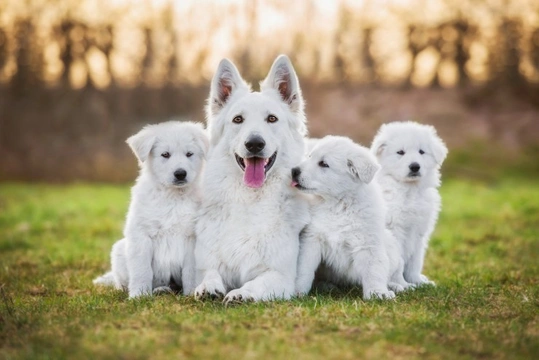
Problems that can arise when breeding from a dam that is too young
Spaying or neutering pet dogs is something that all owners should do as a matter of course as soon as the dog is old enough, unless you are specifically planning to breed from your dog and have made an informed decision and a plan to do so.
Responsible breeding involves waiting until the dam in question is both physically and mentally mature enough to carry and raise a litter, and also, waiting until the dog is old enough to ensure that any hereditary or conformation problems that may make breeding a poor choice have the chance to become apparent.
General guidance on responsible breeding states that a dam should be at least two years old before they first conceive, and for some larger breeds and those that develop more slowly, even older. While some breeders breed from their bitches from the age of one year old, this is really too young and can potentially increase the risk of a wide range of problems and complications in mating, gestation, delivery and raising the litter.
Bitches under a year old are simply too young altogether, and allowing a bitch to conceive and carry a litter when they are still effectively puppies themselves is both problematic and highly unethical.
If you wish to understand more about why breeding from a bitch that is too young (under two, or even younger) is problematic, or if a slip-up has occurred and your younger bitch has conceived when you had not planned for this, read on to find out more about some of the problems that can arise when breeding from a dam that is too young.
Physical maturity
In order to be able to breed successfully and carry a litter to term with the delivery of healthy pups, the dam must be physically mature. Mating, pregnancy and raising a litter are all hard on the body, and the body of a dam should be fully physically mature in order to withstand the rigours of doing so. If the dam is still growing and developing herself, carrying a litter will not only affect her own physical development and condition, but also, that of the pups.
Mental maturity
As well as being hard on the body, pregnancy and raising puppies requires mental maturity on the part of the bitch too, as well as a healthy nose of maternal instincts. The younger the dam in question, the more likely they are to reject their litter or not really know what to do with them, which are problems that are much less likely to arise in a bitch that is mentally mature and who will have had the time for their instincts to kick in when it comes to raising the litter successfully.
Health issues
Pre-breeding health screening is advised for certain hereditary conditions for virtually all pedigree dog breeds, to ensure that breed-specific health issues are not passed on to the litter. However, not all known issues with conformation and/or hereditary health defects can be tested for and in some cases, these things will not become apparent until the dog in question reaches a certain age-usually around two years old.
This is one of the reasons why waiting until a bitch is at least two is important, because otherwise, health problems and hereditary defects can slip through the net, increasing the chances of the subsequent litter inheriting such problems and suffering from issues themselves.
Gestation
Complications during the pregnancy itself are exponentially more likely to arise in immature bitches, which can dramatically reduce the litter’s viability and chances of survival.
Young dams are more likely to miscarry or have stillborn pups, and the risk of birth defects and failure thrive in the litter are higher too.
Delivery
A dam whose body is not physically mature will have more problems actually delivering the litter than one who has reached their full adult size and whose bones and joints are mature. Complications with delivery are more likely in younger bitches, particularly if the sire was larger or if either parent are from a breed with large heads, such as the English bulldog.
Immunity
It takes time for the immune system of a dog to fully develop and reach optimum protection, and this is due to a combination of both the time it takes for vaccinations and boosters to become effective, and the development of the dog’s own natural immunity.
A bitch under two will not pass on the full benefit of adult immunity to her pups, which in turn will weaken their potential health and place them at risk of contracting dangerous illnesses while young. It may also potentially have an impact on their lifelong health as well.
Litter size and health
A younger dam will tend to have a smaller litter, and generally, the pups will tend to be rather smaller too than they would be if the dam was fully mature. Pups born small will often catch up with the normal development curve during their first few months of life-but in some cases, will be generally smaller and potentially, more fragile regardless.



